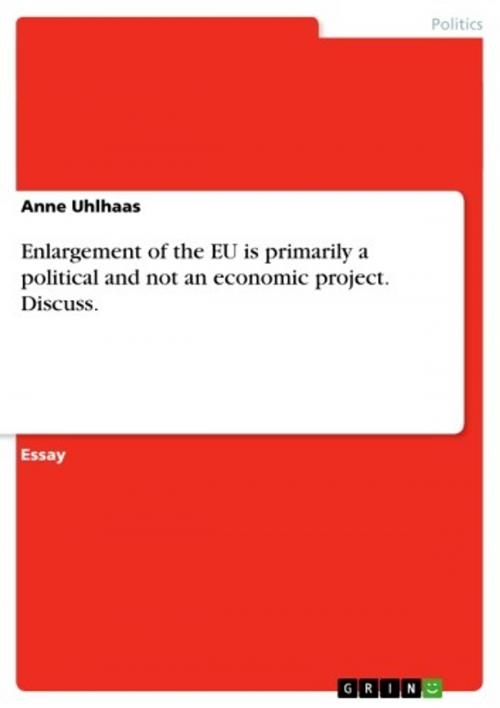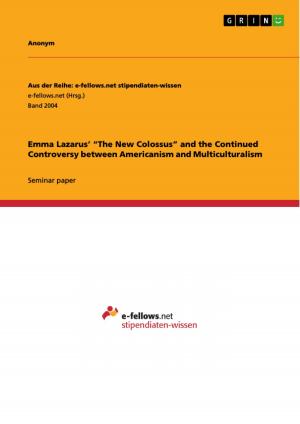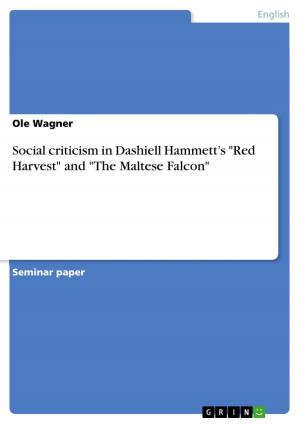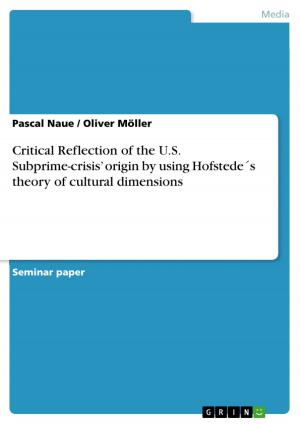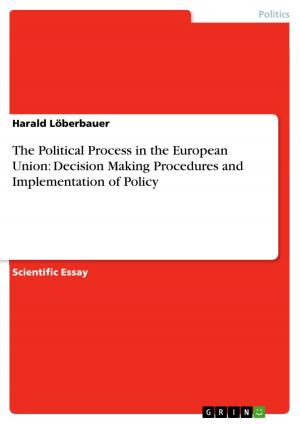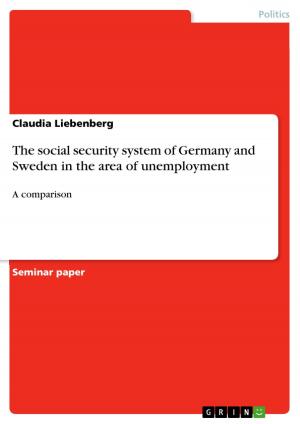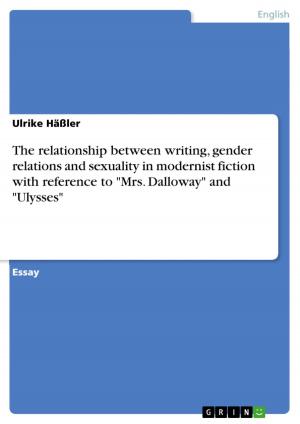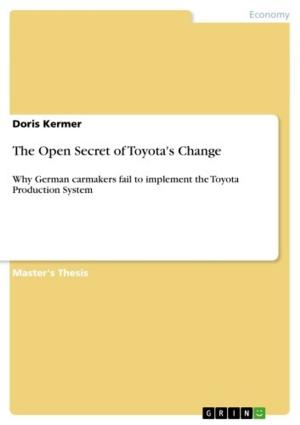Enlargement of the EU is primarily a political and not an economic project. Discuss.
Nonfiction, Social & Cultural Studies, Political Science| Author: | Anne Uhlhaas | ISBN: | 9783638176590 |
| Publisher: | GRIN Publishing | Publication: | March 13, 2003 |
| Imprint: | GRIN Publishing | Language: | English |
| Author: | Anne Uhlhaas |
| ISBN: | 9783638176590 |
| Publisher: | GRIN Publishing |
| Publication: | March 13, 2003 |
| Imprint: | GRIN Publishing |
| Language: | English |
Essay from the year 2002 in the subject Politics - International Politics - Topic: European Union, grade: ECTS-grade B = 2, University of Leeds (Insitute for Politics and International Studies), course: Controversies in European Integration, 6 entries in the bibliography, language: English, abstract: The posed question comprises three different issues which have to be investigated. To answer the question properly you have to fragment the project of enlargement and analyse enlargement in terms of reasons and motives for it, problems in the forefront of it and gains and losses caused by it. Investigating these issues I will argue that enlargement is primarily a political rather than an economic project. This does not mean that economy is not an important factor in the process of enlargement, but that the political factors prevail. To support my argument, due to topicality, I mainly want to examine the current process of Eastern enlargement as an example for enlargement of the EU in overall terms. I first want to work out the motives and reasons which have to be given to make enlargement happen at all. I will raise the question of why enlargement is so important for the EU and why it consistently exposes itself to the problems of this change instead of remaining as it is. I will then refer to the problems which erupt in the process of enlarging the EU, and will investigate the requirements for enlargement concerning both member states and candidate countries. As a third subject I want to refer to the gains and losses implicated in enlargement. In this regard, I want to look at both immediate consequences of enlargement for the member states and other outcomes in terms of the future perspective of the EU as a political actor all over the world. Finally, I will sum up my results and explain, why especially the question of enlargement requires careful political decisions.
Essay from the year 2002 in the subject Politics - International Politics - Topic: European Union, grade: ECTS-grade B = 2, University of Leeds (Insitute for Politics and International Studies), course: Controversies in European Integration, 6 entries in the bibliography, language: English, abstract: The posed question comprises three different issues which have to be investigated. To answer the question properly you have to fragment the project of enlargement and analyse enlargement in terms of reasons and motives for it, problems in the forefront of it and gains and losses caused by it. Investigating these issues I will argue that enlargement is primarily a political rather than an economic project. This does not mean that economy is not an important factor in the process of enlargement, but that the political factors prevail. To support my argument, due to topicality, I mainly want to examine the current process of Eastern enlargement as an example for enlargement of the EU in overall terms. I first want to work out the motives and reasons which have to be given to make enlargement happen at all. I will raise the question of why enlargement is so important for the EU and why it consistently exposes itself to the problems of this change instead of remaining as it is. I will then refer to the problems which erupt in the process of enlarging the EU, and will investigate the requirements for enlargement concerning both member states and candidate countries. As a third subject I want to refer to the gains and losses implicated in enlargement. In this regard, I want to look at both immediate consequences of enlargement for the member states and other outcomes in terms of the future perspective of the EU as a political actor all over the world. Finally, I will sum up my results and explain, why especially the question of enlargement requires careful political decisions.
